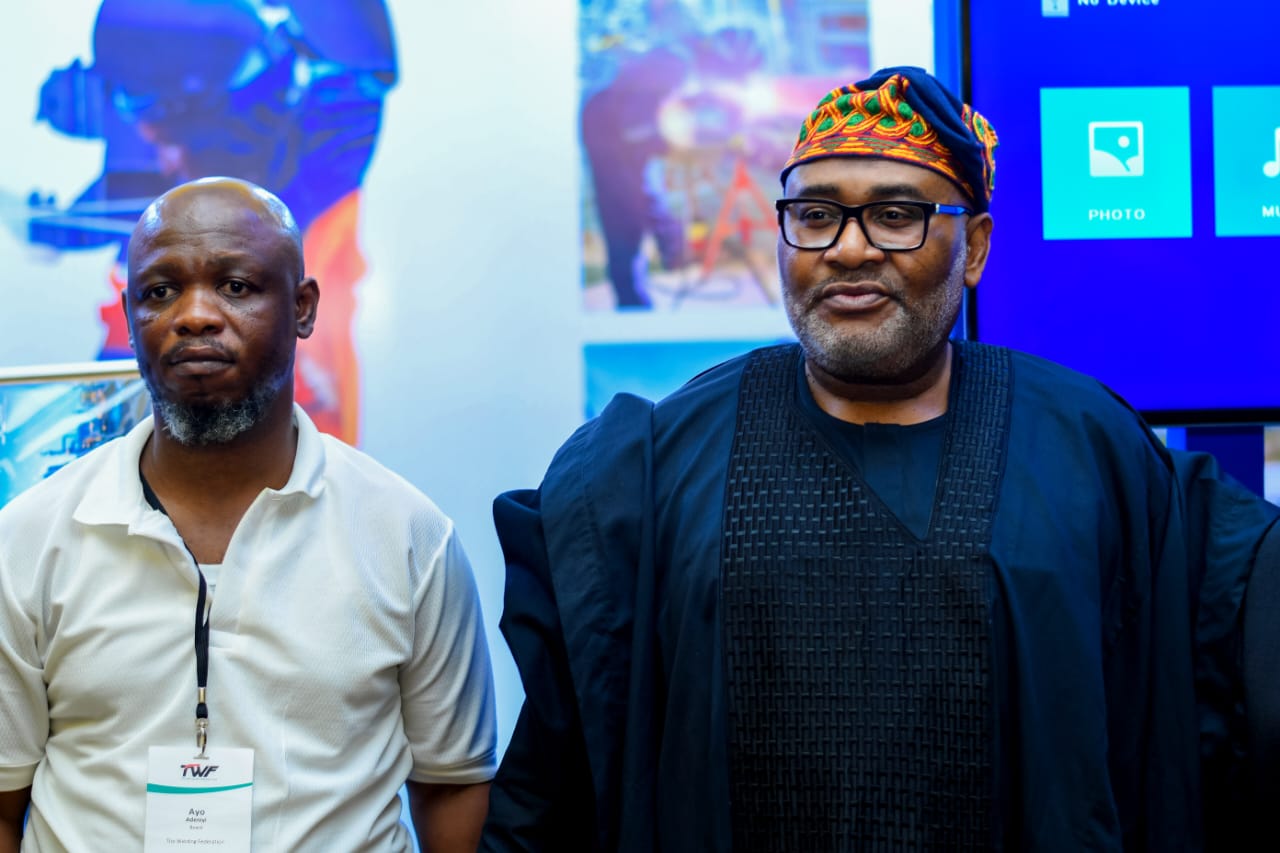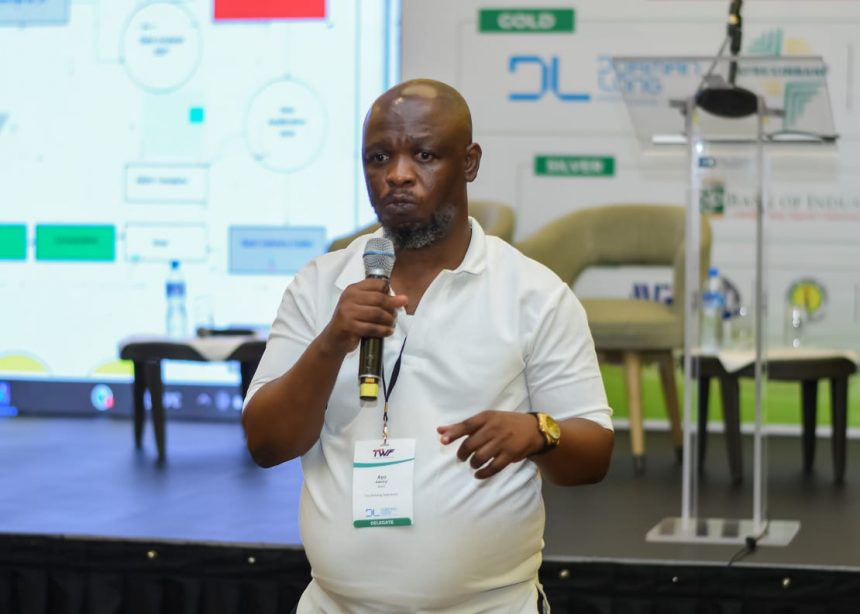Mr Ayo Adeniyi is the Executive Director of The Welding Federation (TWF) Africa. In this interview with The Herald’s John Ogunsemore on the sidelines of the ongoing 2nd TWF Annual Assembly and Conference holding in Lagos, he explains why this year’s edition is unique. Excerpt…
Question:
Congratulations! TWF Annual Assembly and Conference has successfully gathered experts and officials from different countries in the last forty hours engaging in both knowledgeable discussions and physical welding activities. From Nigeria to South Africa, Ethiopia, Ghana, Cameroon, Senegal, Liberia, Morocco, Mozambique, and other non-Africa countries. This is a very huge success that picture the united African economy being crusaded. You have been identified as the convener. Can we meet you and know a little more about TWF?
Answer
My name is Ayo Adeniyi, Executive Director of The Welding Federation (www.weldfa.org). TWF is pan Africa body focused on domiciling and domesticating solutions to welding and material manufacturing in Africa. TWF is incorporated in South Africa with membership spread across Africa and administrative managed more from Nigerian. Thanks to the office donated by PETAN to sustain the activities of African content in welding and materials manufacturing.
The success that you have used in describing his conference rests on the commitments and consistency of members of the conference committee in the last six months. Led by Dr Timi Austen Peters of Dormanlong Engineering, Prof MOH Amuda, Prof David Esezobor, Dr Lawrence Osoba and Dr Ayoola of University of Lagos, Oye Babaropulous of Nigerian Foundries Ltd, Harrison Uyo of Homik Engineering, Engr Grace Erhimona of Petroleum Training Institute and etc. I had to deliberately list these individual because in one way or the other, their collective efforts were instrument to achieving the success.

Question:
What’s the aim of the conference and what are expected deliverables?
Answer
Perhaps your intended question is what has been the impact of the 1st and now 2nd assembly? Simple answer is that since the advent of TWF activities, appetite for African solutions is growing exponentially, and solutions also being developed to address real industry concerns. TWF has fully created an integrated personnel certification scheme. A critical review of the content does show the gaps it has addressed in the industry.
In the next 48 hours, welders from African have been involved in a healthy atmosphere of sharing, building of friendships and learning one or two new tricks from each other. This is one the goal of the competition.
In addition, TWF Annual Assembly and Conference 2024 aims amongst other things to improve on efforts towards fixing the frictions limiting the advancement of material science manufacturing in Africa by sharing technical experiences from simple to complex product executions, as well as research findings.
At TWF Assemblies, solutions or recommendations are proposed on ways and means to address fault lines and advance national capacities from participation to management of national manufacturing industries in Africa.
Question:
How many editions in the past?
Answer:
Equally as important as the knowledge of impact thus far, is also understanding the story and history of TWF. The Federation started with virtual sessions. This was then followed by the 1st regional symposium in Uganda in the year 2022. The momentum has remained steady since then with the 1st assembly in Cairo, followed by 2nd assembly in Lagos Nigeria. The 3rd assembly is already scheduled to hold in Addis Ababa in the year 2025.
Question:
What support and what has been the role of government in advancing and repositioning the welding industry thus as being championed by TWF?
Answer:
This might not be a straightforward response as it depends on which angle this question is being drawn from. The Federal Ministries of Steel Development and the Ministry of Industry, Trade and Investment were represented at the highest level. For us, this is support. I will therefore say the role of government in repositioning the industry starts with recognition and fellowshipping with the industry to understand priority concerns that complement industry interest and best practices.
Thriving industries anywhere and everywhere are adequately knowledgeable constructive analysis of what complements its labor and economic interests most effectively. The role of government to support sustainable growth of the industry is therefore to identify, nurse and sustain a competitive environment that drives best practices locally.
Question:
What significant role can cooperation among stakeholders play in this repositioning?
Answer
The roles of stakeholders cannot be overemphasized in repositioning of industries. More importantly is in the sustainability factor associated with such industry. This success of this 2nd annual assembly is an attestation to possibilities achievable when and where there are alignments of interest by stakeholders.
This conference held in collaboration with PETAN and OGTAN is evidence to the power of cooperation. The donation of an administrative office to manage the growing activities of PETAN has also been an instrument aid to sustained momentum in delivery of contents to the industry. This exemplifies the roles that stakeholders can or should play.

